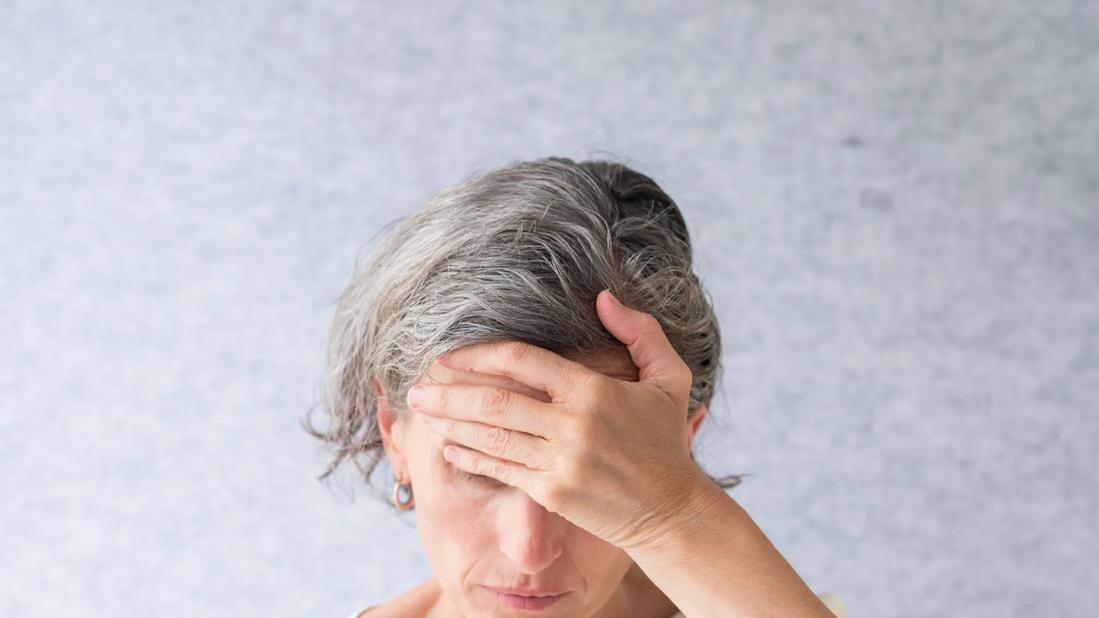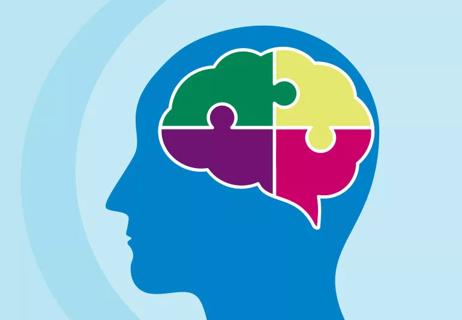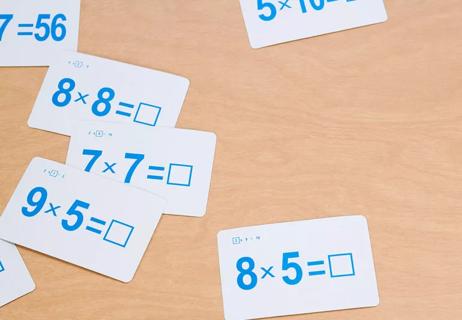Decreasing estrogen levels can cause brain fog, but symptoms of dementia are different and more pronounced

You’re telling a story at work and totally blank on the name of that colleague you talk to every single day. You’re asking your kids to do something around the house, but can’t seem to remember the word … what is it again? ... oh, yeah, “laundry.” You’re mixing up dates and facts, too — a kind of brain fog you’ve never experienced before.
Advertisement
Cleveland Clinic is a non-profit academic medical center. Advertising on our site helps support our mission. We do not endorse non-Cleveland Clinic products or services. Policy
You used to consider yourself pretty sharp, but this isn’t like you. What the heck is going on?! You can’t help but feel worried. Could this be an early sign of Alzheimer’s disease or another type of dementia?
If this sounds familiar, try not to panic — especially if you could be approaching menopause.
We talked to three women’s health experts to understand the difference between having trouble remembering things due to menopause and memory problems related to Alzheimer’s disease or dementia.
Memory lapses and trouble concentrating are known symptoms of menopause and even perimenopause (the lead-up to menopause). They’re also common in pregnancy.
The cause? Good old hormones — specifically, estrogen, the female sex hormone, which is necessary for maintaining sexual and reproductive health. Your estrogen levels fluctuate during menstrual cycles and pregnancy, and they begin to decline in perimenopause.
“Dipping levels of estrogen can affect your brain function and cause momentary lapses in recollection,” explains women’s health specialist Pelin Batur, MD.
Low estrogen can cause bouts of temporary brain fog that can leave you feeling a little worried about your mental fitness. It tends to affect verbal memory, like your ability to remember words and names. But this type of menopause-related forgetfulness isn’t the same as early signs of dementia.
Advertisement
This is a big one: “People with dementia don’t think they have issues with their memory. It’s family members who bring them in to get checked out,” clarifies Caroline Just, MD, a neurologist who specializes in women’s health and the brain. “I often tell my patients, ‘People who think they have dementia usually don’t.’”
The first signs of dementia are typically things like getting lost in familiar places or confusion about how to perform everyday activities, like driving home from the store — not the inability to remember names.
Age is another key factor. Alzheimer’s disease mainly affects people over age 65. Less than 10% of cases occur in people younger than 65, especially those without a family history of early-onset Alzheimer’s.
Menopause, on the other hand, typically happens in your mid-40s to mid-50s, and perimenopause can start years earlier.
“Menopause-related brain fog also tends to stay stable or improve,” Dr. Just says, “while dementia tends to progress.”
Midlife “brain fog” can be frustrating and worrisome at times. But with some extra care and focus on your health, it can be managed and moderated.
Here’s how to cope with the memory issues that menopause may bring.
When you were younger, you might’ve been able to get away with very little sleep and boxed mac and cheese for dinner three nights a week. But the older you get, the more intentional you have to be about your health.
Women’s health specialist Sobia Khan, MD, encourages you to:
“Focusing on your overall health can help you have a clearer mindset,”
Dr. Khan notes.
Some of us pride ourselves on our ability to do a billion things at once, but the science is clear: Multitasking is bad for our brains. And when you’re dealing with diminishing hormones, your brain really doesn’t need all that extra pressure.
“Multitasking drains your brain’s abilities, especially at the time of perimenopause, when you should be conserving your energy when you can,” states Dr. Khan. “If you exhaust it, you’ll be depleted, and your brain fog will be more pronounced.”
“When you think you’re multitasking, you’re really just switching quickly between multiple tasks, which means you need to spend time re-orienting yourself to each task every time you switch,” adds Dr. Just. “This is called ‘set-switching,’ and it really tires out our brains.”
Advertisement
By intentionally engaging your brain, you can help yourself stay mentally fit. Start by thinking about whether your regular daily activity or work is primarily left-brained or right-brained: Your brain’s left side is the thinking, logical side, while the right side is its creative center, tied to music, art and imagination, and visual-spatial awareness.
Once you’ve figured out which side of the brain you focus on most often, start incorporating activities that involve the other side. If you’re an accountant, for example, do something creative in your spare time, like painting or knitting. If you’re an artist, try problem-solving activities or logic puzzles.
Here are some other activities that can improve your mental fitness:
“Some of the best ways to help your brain stay fit and active to counteract some of the memory fog you experience during menopause can also be a lot of fun,” Dr. Batur encourages.
Studies are mixed about whether hormone therapy for menopause can alleviate memory issues. Some say hormone therapy is a protective factor against dementia, while others say it’s a risk factor for it. Still, others suggest no change at all.
Advertisement
“In my humble opinion, I think that if we’re still so unsure about the risk versus the benefit, it means that the risk must be so darn small that we’re really having a hard time consistently measuring it,” Dr. Batur shares.
But hormone therapy is generally considered the gold standard for treating menopausal symptoms that negatively affect your quality of life. Dr. Batur’s point, then, is that the possible risk of dementia from being on hormone therapy is likely outweighed by the many benefits.
“The benefits are highest and risks are minimized when hormone therapy is started within 10 years of going into menopause,” she adds. “Most of the time, this happens in your late 40s or early 50s.”
This one can be extra hard. As we get older, our bodies and minds simply don’t operate the way they used to. Things change. We change. And each of us has to learn to live with that.
“We have to validate and accept it, and then prioritize our responsibilities so we can address the vital components of our lives, rather than trying to do everything the way we did when we were younger,” Dr. Khan states. “You’re just not going to have the time or energy for that anymore.”
Practices like mindfulness, meditation and therapy can all help you embrace — or at least start to accept — the aging process so you can learn to live with it rather than fight against it.
Advertisement
“I find that once people have acceptance, they actually do better at being present in the moment and overcoming the brain fog,” she continues.
It can be frustrating, but usually pretty normal to forget the neighbor’s kid’s name or misplace your keys … yes, even that one time you found them in the pantry.
But signs of dementia go beyond the occasional absentmindedness or brief bout of brain fog. They can include:
Early signs of dementia can also include changes in vision, personality, mood and judgment. And though almost two-thirds of people in the U.S. with Alzheimer’s are women, there are steps you can take to reduce your risk.
“It’s always OK to check with a healthcare provider if you’re worried about your memory,” Dr. Just reassures, “especially if you’re noticing a significant decline as menopause progresses.”

Sign up for our Health Essentials emails for expert guidance on nutrition, fitness, sleep, skin care and more.
Learn more about our editorial process.
Advertisement

When the familiar suddenly feels unfamiliar, it could be nothing — or something worth noting

Use a gentle, nonjudgmental tone, focus on prevention and reassure them that age-related memory issues can have a variety of causes

The brain areas that process smell are closely connected to those responsible for our memories and emotions

Our collective misremembering of events comes from a surplus of false memories

Cardio is great for improving cognition, but strength and balance training are just as important

The difference between normal aging and issues that affect your independence

And 12 easy tips that can pay off big

Those nursery rhymes and song lyrics are worth while

Even small moments of time outdoors can help reduce stress, boost mood and restore a sense of calm

A correct prescription helps your eyes see clearly — but as natural changes occur, you may need stronger or different eyeglasses

Both are medical emergencies, but they are very distinct events with different causes